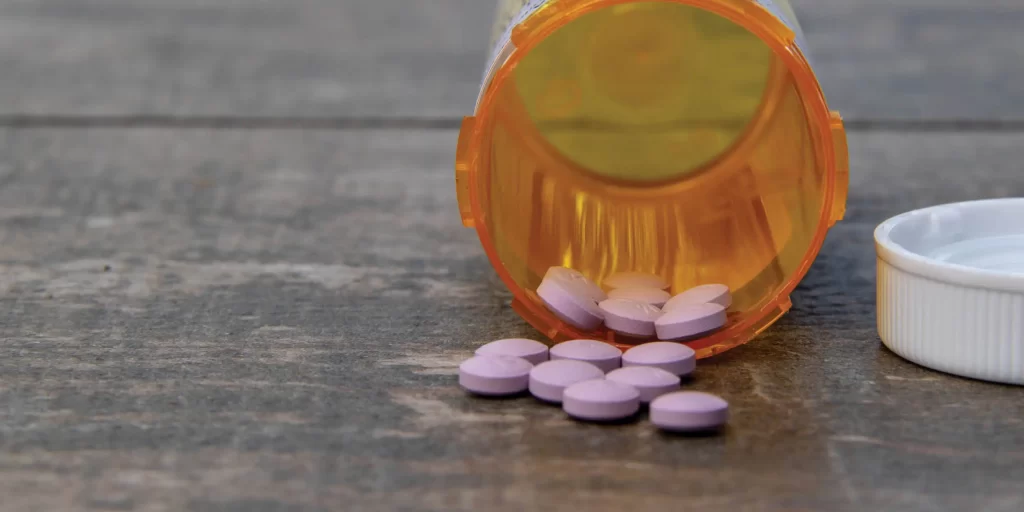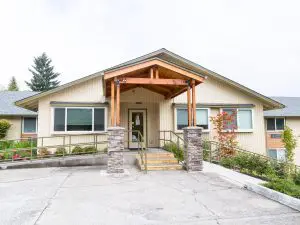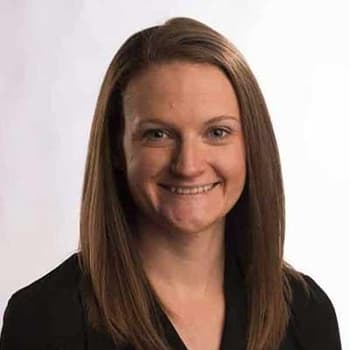Ambien Treatment in Washington & Oregon
Written by Renee Deveney
& Medically Reviewed by Dr. Trisha Sippel, PhD
Medically Reviewed
Up to Date
Last Updated - 6/17/2022
View our editorial policy
Ambien is a prescription sleep aid that is used to treat insomnia. Because of its effects on the brain, when Ambien is used other than prescribed, it can be addictive. Ambien addiction can have long-term consequences and be detrimental to a person’s health. Getting off Ambien can be difficult because withdrawal symptoms often occur when a person who is addicted to Ambien stops using it. Understanding how to safely wean off Ambien and how to recover from Ambien addiction can be a life-changing experience.
Ambien Addiction Treatment Options
The goal of Ambien addiction treatment is to safely abstain from using the drug indefinitely. The treatment options for Ambien addiction and dependence include:
- Medical Detox: Ambien detox treatment involves tapering off Ambien doses slowly until the person is weaned from its use. Sometimes other medications will be used to ease withdrawal symptoms. When tapering is done under the supervision of a medical professional, it is referred to as medical detox. This usually takes place in an inpatient setting where the person can have 24-hour access to care.
- Residential Rehab: Residential treatment for Ambien involves staying at a facility during the detox and recovery process. Professional medical help will be offered to treat withdrawal symptoms. Therapy sessions will also be used to address any underlying causes that may have lead to the misuse of Ambien.
- Outpatient Rehab: Ambien addiction treatment centers may also offer outpatient rehab as a treatment option. Outpatient rehab centers require regular visits to a counselor or therapist who will monitor your progress and keep you on track toward recovery. Medical help through the detox process can also occur with outpatient rehab; however, people choosing outpatient detox will not have the round-the-clock supervision and access to care that an inpatient detox program has.
- Dual Diagnosis: Ambien misuse is sometimes accompanied by a co-occurring disorder such as another substance use disorder or a mental health condition. If a person is dually diagnosed, they should get treatment for both disorders. Addressing one disorder at a time, or one disorder and not the other, will likely be less effective for the person in the future. Oftentimes the disorders are dependent on one another and to overcome one, the person needs to overcome the other disorder as well.
- Aftercare & Sober Living: Once a person has successfully tapered off Ambien, regular contact with their medical care provider can help a patient stay on track. Regularly checking in via aftercare support groups or transitioning through sober living could help prevent relapse.
- Cold Turkey: Getting off Ambien cold turkey is when a person completely stops using Ambien on their own, without any additional assistance. This can be dangerous because the withdrawal symptoms can often be difficult to deal with. When a person quits cold turkey, they have an increased risk of relapsing. It is better to speak with a medical professional and develop a plan to stop Ambien use. They can help you deal with withdrawal symptoms and provide support to maintain lasting recovery.
Tapering Off Ambien
A person who depends on Ambien to sleep at night may question how to get off Ambien and sleep normally again. This can be achieved with the help of a medical professional. A doctor can help you develop a plan to determine the best option for overcoming insomnia without being dependent on Ambien to sleep.
Tapering off Ambien usually starts with lowering the dose of Ambien gradually until it is no longer needed. The medical professional may also recommend taking melatonin as a natural sleep aid. Getting into healthy sleep patterns like waking up and going to bed at the same time every day, taking a few minutes to wind down at the end of the day and avoiding screen time before bed will also be encouraged.
How Long Does Ambien Rehab Last?
How long rehab lasts depends on how long the person has used Ambien and how much they are using. This will help determine the rate at which they should be tapered off the drug and if additional methods should be used to help them cope with the withdrawal symptoms.
Once the person has successfully stopped taking Ambien, maintenance treatment will help them continue to abstain from Ambien use. This usually involves therapy to determine the root of the problem that led to the misuse of Ambien in the first place. This can also involve group therapy where the person can relate to other people who are going through similar experiences. In general, the rehab process can be anywhere from several weeks to a year or more.
What Does Ambien Rehab Cost?
How much rehab costs depends on the level of care, length of stay, the specific treatment center they choose to go to and whether it is covered by insurance. Rehab costs, no matter how much they end up being, are worth it to increase the likelihood that a person will safely and effectively recover from their substance use disorder and maintain abstinence.
Does Insurance Cover Rehab?
Some insurance plans will cover rehab. Other programs that can assist with rehab costs include:
- Government-assistance programs: State-funded rehab programs can help provide rehab for those who qualify. Contact information for each state program can be found through the Substance Abuse and Mental Health Services Administration.
- Sliding-fee programs: Sliding-fee programs allow patients to pay over time, depending on the specific situation.
- Private-pay programs: If they so choose, a person can pay for their own expenses, as rehab can be funded without insurance. When private-pay programs are used, the person pays out of pocket rather than using their insurance.
When considering payment for rehab, keep in mind that your health and well-being will likely improve greatly in recovery from addiction. In the end, this is well worth the cost of rehab.
Choosing an Ambien Addiction Treatment Center
Choosing a rehab center is the first step toward recovering from Ambien addiction. For long-term healing, it is important to pick a center that will provide you with the individual care you need to get better. Here are some things to think about when considering how to choose a rehab center:
- Location: Is it too far from where you live? Or would you rather be further away from home when choosing an inpatient option?
- Cost: How does the cost compare to other enters? Will they take your insurance or will you have to find another way to pay?
- Methods of treatment provided: Do they have the treatment options available that you would like to use to recover from your addiction? What are the different treatment options that they offer?
- Success Rate: What is the relapse and long-term recovery rate at the rehab center?
- Duration of Treatment: How long will treatment take at their facility? Will you stay at the center? How often will you have to visit if you choose outpatient rehab?
- Staff to Patient Ratio: Do they have enough staff to give you the individual attention that you will need during detox and recovery?

The Recovery Village Ridgefield
888 Hillhurst Rd. Ridgefield, WA 98642
(877) 508-0446
The Recovery Village Ridgefield offers a variety of treatment options for substance use disorders and individualized treatment plans to ensure long-term healing during rehab and beyond. We offer local drug rehab for individuals near Portland, Oregon, and Washington State.
Key Points: Understanding Ambien Addiction Treatment & Rehab
Here are a few things to remember about Ambien rehab and Ambien addiction treatment:
- There are a variety of treatment options available to help a person heal from Ambien use disorder
- Choosing the best treatment center and treatment options to fit your needs is important to your recovery
- The best way to heal from your substance use disorder and stay sober is to get the help and continued support you need
If you or a loved one has become addicted to Ambien or are suffering from a co-occurring substance use disorder, The Recovery Village Ridgefield is here to help. We have state-of-the-art treatment options and offer comprehensive treatment plans that will help you heal from substance use disorder. Contact The Recovery Village today and start on the road to recovery.
Sources
Food and Drug Administration. “Ambien Prescribing Information.” April 23, 2008. Accessed August 8, 2019.
Xie, Z.; et al. “A review of sleep disorders and melatonin.” Neurological Research, June 2017. Accessed August 10, 2019.
Shukla, L.; et al. “Benzodiazepine and “Z-Drug” Dependence: Data From a Tertiary Care Center.” The Primary Care Companion for CNS Disorders, February 16, 2017. Accessed August 10, 2019.
Substance Abuse and Mental Health Services Administration. “Directory of Single State Agencies (SSA) for Substance Abuse Services.” December 16, 2016. Accessed August 10, 2019.
National Health Service Corps “NHSC Sliding Fee Discount Program Information Package.” June 2019. Accessed August 10, 2019.
Melemis, Steven M. “Relapse Prevention and the Five Rules of Recovery.” The Yale Journal of Biology and Medicine, September 2015. Accessed August 10, 2019.
Brett, Jonathan; Murnion, Bridin. “Management of benzodiazepine misuse and dependence.” Australian Prescriber, October 2015. Accessed August 10, 2019.
View Sources
Food and Drug Administration. “Ambien Prescribing Information.” April 23, 2008. Accessed August 8, 2019.
Xie, Z.; et al. “A review of sleep disorders and melatonin.” Neurological Research, June 2017. Accessed August 10, 2019.
Shukla, L.; et al. “Benzodiazepine and “Z-Drug” Dependence: Data From a Tertiary Care Center.” The Primary Care Companion for CNS Disorders, February 16, 2017. Accessed August 10, 2019.
Substance Abuse and Mental Health Services Administration. “Directory of Single State Agencies (SSA) for Substance Abuse Services.” December 16, 2016. Accessed August 10, 2019.
National Health Service Corps “NHSC Sliding Fee Discount Program Information Package.” June 2019. Accessed August 10, 2019.
Melemis, Steven M. “Relapse Prevention and the Five Rules of Recovery.” The Yale Journal of Biology and Medicine, September 2015. Accessed August 10, 2019.
Brett, Jonathan; Murnion, Bridin. “Management of benzodiazepine misuse and dependence.” Australian Prescriber, October 2015. Accessed August 10, 2019.
Authorship






